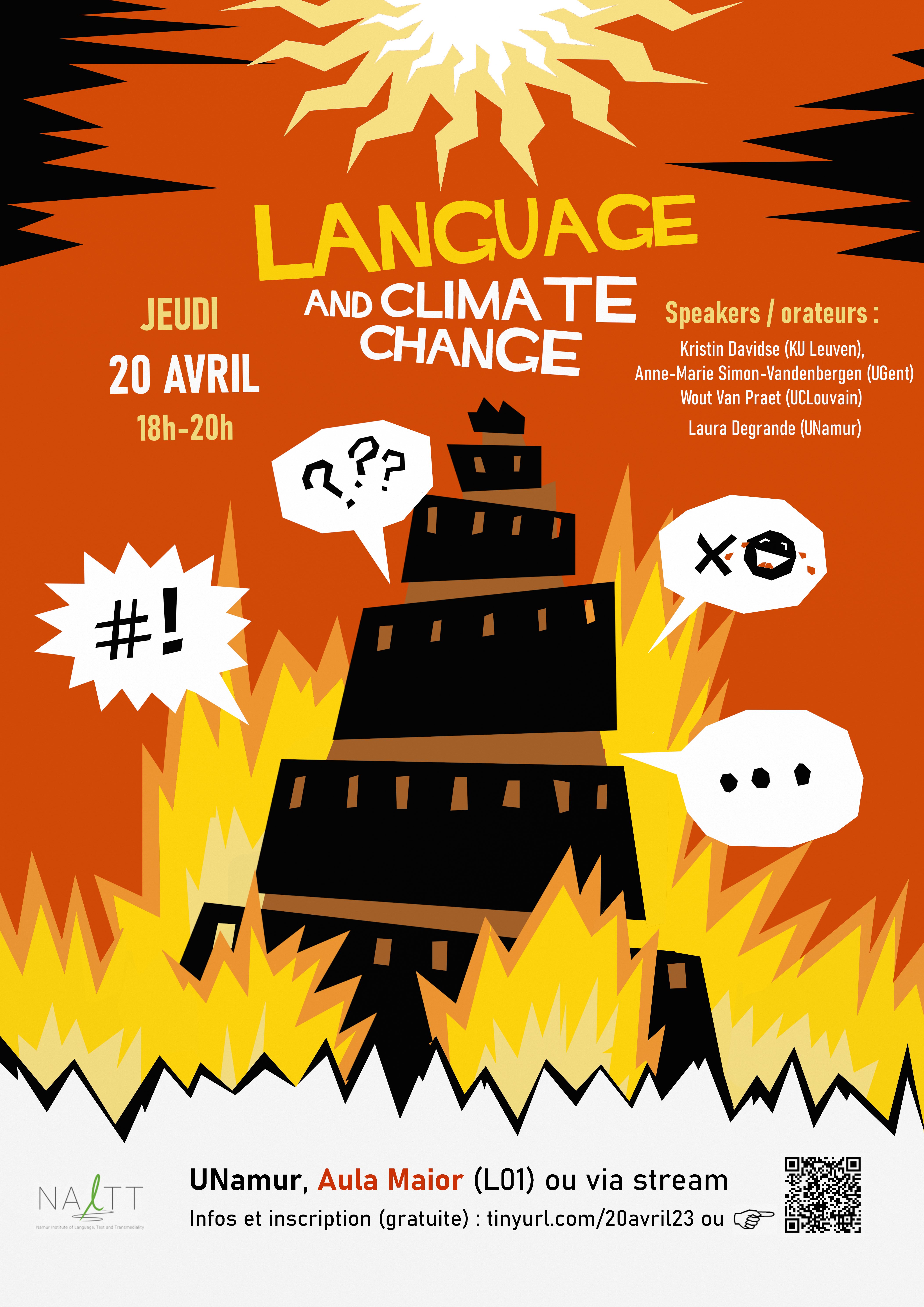 Séance du 20 avril 2023: Kristin Davidse (KU Leuven), Anne-Marie Simon-Vandenbergen (UGent) & Wout Van Praet (UCLouvain), et Laura Degrande (UNamur)
Séance du 20 avril 2023: Kristin Davidse (KU Leuven), Anne-Marie Simon-Vandenbergen (UGent) & Wout Van Praet (UCLouvain), et Laura Degrande (UNamur)
Kristin Davidse (KU Leuven), Anne-Marie Simon-Vandenbergen (UGent) & Wout Van Praet (UCLouvain): Listening to the voices of citizens in climate communication
The debate on climate change is still very much alive, both internationally and in Belgium, and among policymakers as well as among the general public. While the scientific predictions are becoming reality—faster than expected—the international debate is becoming increasingly polarised. Scepticism and denial—not so much based on scientific grounds but rather on ideology and political or economic interests—are by no means diminishing. Confronted with this situation, “investigations of climate change communication cannot avoid attending to the role of language”, as Nerlich et al (2010: 103) put it. Indeed, linguistic analysis allows us to broaden the perspective from factual (dis)information to the role played by ideology, identity and worldview in climate change communication. Linguistic analysis of both climate-aware texts and of sceptical and denialist discourse can reveal, amongst others, the different narratives of climate change they construe, often polyphonically, and the attitudes that are explicitly or implicitly conveyed towards the participants in the climate debate. [Read the full abstract...]
Laura Degrande (UNamur): 'Cool kids saving a hot planet' : Les pancartes de Youth for Climate
Lors de cette conférence, je présenterai les prémices de résultats de ma recherche doctorale dans le cadre du MIS FNRS sur les écritures sauvages de la contestation. Ma communication portera sur les pancartes de la branche belge du mouvement Youth for Climate qui ont circulé lors des manifestations des jeunes en 2019, période d’apogée de la mobilisation. Ces objets scripturaux militants, aux caractères matériels, thématiques et formels spécifiques, sont autant d’espaces de constitution d’un discours officieux sur la crise environnementale ; ils esquissent en outre l’autoportrait de ce mouvement écologiste. Les slogans dénotent en effet un ancrage idéologique, une complicité générationnelle et une problématique de genre, dont il s’agira d’éclairer les enjeux.

